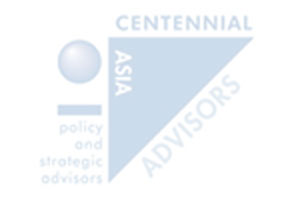- January 20, 2022
- Posted by: admin
- Category: Daily News
No Comments

- Indonesia, the world’s largest exporter of palm oil, is set to temporarily restrict crude palm oil (CPO) exports starting late Jan 22 as the country seeks to combat rising cooking oil prices by forcing producers to prioritize domestic markets.
- The Trade Ministry said that CPO exporters needed to show proof of selling CPO domestically each time they applied for export permits with the ministry over the next six months, starting 24 Jan 22.
- The ministry will withhold export approval documents until receiving such proof. All exporters are subject to this policy, including those that have never supplied domestic markets before and are not affiliated with cooking oil producers.
- “This is not an export ban. We want to ensure CPO availability domestically,” Trade Minister M. Lutfi told reporters during a virtual press conference. The announcement came after the country saw a hike in cooking oil prices for several consecutive months following a surge in international CPO prices amid rising demand and limited production.
- Trade Ministry data shows that domestic cooking oil prices rose 46.9% y/y to IDR19,100 per liter on 19 Jan 22. The policy adds to a list of Indonesia’s protectionist policies, such as its market-rattling nickel export ban and coal export ban.
- Trade Ministry Foreign Trade Director General Indrasari Wisnu Wardhana said the CPO policy did not set volume and price limits, differentiating it from the coal DMO.
- The Indonesian Palm Oil Association (Gapki) and the Indonesian Vegetable Oil Refiners Association (GIMNI) told House of Representative lawmakers that they supported the government policy to stabilize cooking oil prices.
- Gapki deputy chairman Togar Sitanggang said the government was rumored to be considering a minimum 20% domestic market allocation for CPO, which would be similar to the coal DMO. He did not specify how the policy would impact CPO producers.
- The government has also decided to expand a subsidized cooking oil program that provides the commodity at no more than IDR14,000 per liter for households and small businesses.
- The one-price policy is effective for six months, with a possible extension, starting on 19 Jan 22. Retailers are obliged to sell cooking oil at the designated price once the policy comes into effect, while traditional markets will have one week to adjust.
- Lutfi said that the program’s budget had been doubled to IDR7.6tr from the previous IDR3.6tr, and the supply increased to 250 million liters a month from 200 million liters.
- The funds for the budget will come from CPO export levies collected by the Indonesia Oil Palm Plantations Fund Management Agency (BPDPKS). The government will use the subsidy funds to compensate businesses for the difference between the one-price policy and the “economical prices” for companies.
- The program was also expanded to include premium-packaging cooking oil, which is generally higher quality and more expensive than simple-packaging cooking oil.
- Association of Indonesian Edible Oil Industries (AIMMI) chairman Adi Wisoko said that he worried about the amount of paperwork required to bill subsidies from the government.
- “Billing the BDPPKS would require proper documentation. If we sell to supermarkets, they have a taxpayer number, it is clear. But what about warung [kiosks]? That is still not clear,” Adi said.
- Gapki’s Joko supported the decision to use the BPDPKS’ fund, saying that the CPO price surge in 2021 resulted in high levies but producers were still expecting to bear significant losses from the one-price policy.
External Link : https://www.thejakartapost.com/business/2022/01/19/indonesia-to-tighten-cpo-export-rules-temporarily.html
20-Jan-2022
